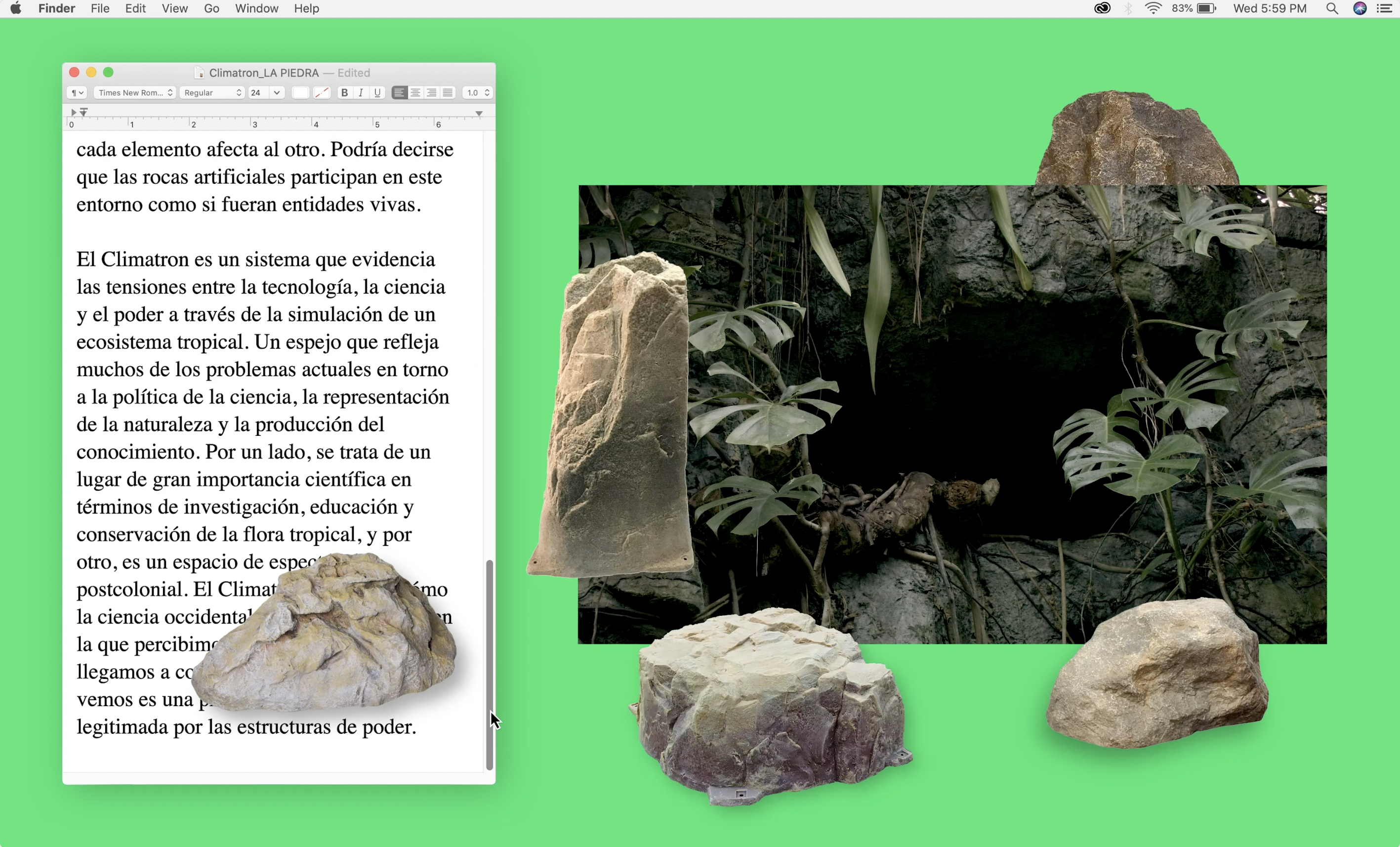03_ Composting Fields #1: Island of Simulation

Island of Simulation: A Tropical Playground, a research project by artist Andrea Carrillo, explores the technological, ethical, and aesthetic implications embedded in the simulation of tropical ecosystems. The narrative is set against the Climatron, a geodesic dome greenhouse built in the 1960s in St. Louis, Missouri that attempted to simulate the climate zones of Hawaii, Java, the Indies, and the Amazon for research and spectacle purposes.
The work draws upon the complex issues around the production of the landscape, revealing colonial logic and principles of exoticism, the relationship between power and spectacle, and how western knowledge has been legitimized through science, technology, and aesthetics mean. Fluctuating between fact and fiction, the work attempts to subvert the ways in which we come to understand this tropical landscape and speculate on new forms of approaching nature. Through the use of animism, multiple non-human sensibilities are brought forward, sharply manifesting a supernatural dimension linked to the body and the sensorial. The characters of the story; the dome, the plants, and the fake rocks, are able to weave narratives around the ethnocentric obsessions of reproducing mini foreign worlds in enclosed spaces, posing larger questions around our complex relationship to nature as an “Other”. Through desire, these characters attempt to seduce the audience as a way to bring the tension between the desire of the object and the absurdity behind it.
This project is part of the Institute for Postnatural Studies Composting Fields. A virtual platform that, through an experimental format of exchange, makes visible and puts in relation to the research of young thinkers and/or artists. It emerges from virtual encounters in which a dialogue is generated around specific research, previously developed by the guest thinkers and/or artists, adapting its content to an informative format. These meetings generate performative videos that show the process of the conversation, where the object’s limits overflow. It also opens access to a bibliographic archive containing the materials worked on and consulted during the development of the project; it is a free and alternative platform of knowledge. This series is coordinated by Lucía Millet and Lucía Ugena.